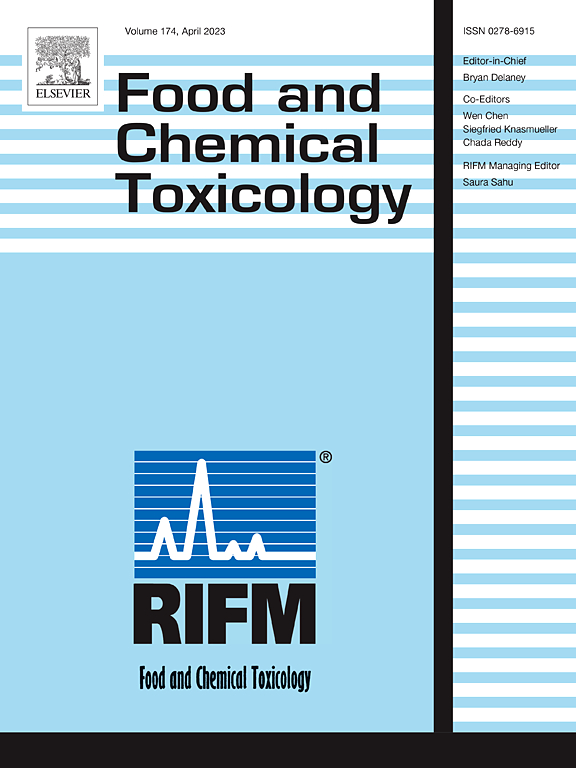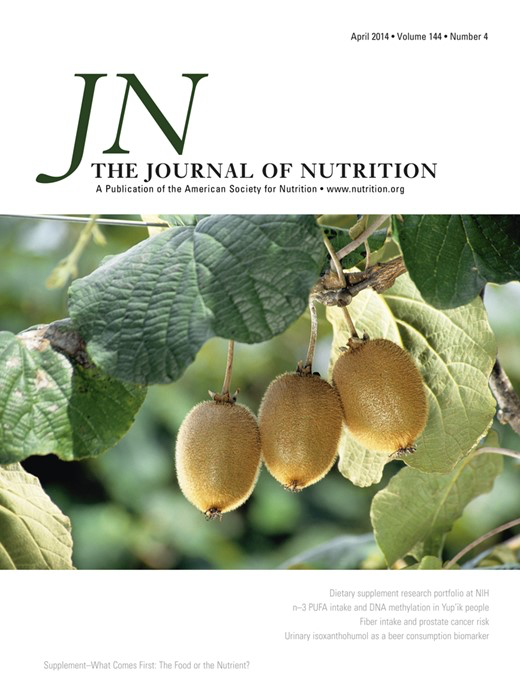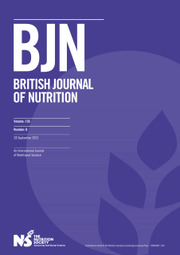Cooking
How to submit an article:
- Registered users can submit any published journal article that has a unique DOI (Digital Object Identifier) name or link to Research Hub.
- For example, you can paste the full DOI link:
https://doi.org/10.1109/5.771073or just the DOI name:10.1109/5.771073into the field above and click submit. - The person who is first to submit a valid article to Research Hub will forever be credited for it, and every article submission earns you +6 Research Points.
Published research studies are articles that present the findings of original research that has undergone a peer-review process and has been made publicly available in scholarly journals, books or other media.

Effects of olive oil on hepatic steatosis and liver enzymes: A systematic review
2023 Oct Journal of Functional Foods Ma Y, Ding X, Gu J, Zhou S, Jiang Y
The systematic review concludes that olive oil, used for eating or cooking in randomized controlled trials, demonstrated significant reductions in hepatic steatosis grading through ultrasound and decreases in aspartate transaminase and alanine transaminase levels, suggesting promise in ameliorating hepatic steatosis. However, further investigations are needed to explore the potential effects of different olive oil types or olive polyphenols on chronic liver ailments.
Systematic Review Randomised Controlled Trial Obesity Liver Enzymes Olive Oil Fatty Liver Disease Type 2 Diabetes
Influence of Heating during Cooking on Trans Fatty Acid Content of Edible Oils: A Systematic Review and Meta-Analysis
2022 Apr 02 Nutrients Bhat S, Maganja D, Huang L, Wu JHY, Marklund M
Heating edible oils to temperatures below 200 °C had minimal impact on trans fatty acid levels, but between 200 and 240 °C, there was a significant increase in levels of specific TFAs (C18:2 t, C18:3t) and total TFAs. Prolonged heating in this temperature range further increased total TFA content. The findings support public health advice to avoid heating oils to very high temperatures and prolonged heating.
Systematic Review Meta-Analysis Cooking Trans Fats
Network Pharmacology-Based Strategy for the Investigation of the Anti-Obesity Effects of an Ethanolic Extract of Zanthoxylum bungeanum Maxim
2020 Nov 13 Frontiers in Pharmacology Wang Y, Yang SH, Zhong K, Jiang T, Zhang M, Kwan HY, et al.
These findings suggest ZBM can be developed as potential anti-obesity therapeutics but also demonstrate the application of network pharmacology for the discovery of herbal-based therapeutics for disease treatments.
Network Pharmacology Hua Jiao Obesity
Deep frying cooking oils promote the high risk of metastases in the breast-A critical review
2020 Oct Food and Chemical Toxicology Ganesan K, Xu B
Repeatedly heated cooking oils, commonly used for deep-frying, produce byproducts containing polycyclic aromatic hydrocarbons (PAHs) and aldehydes with carcinogenic, mutagenic, and tumorigenic properties. The study gathers data from various electronic findings and library databases, indicating that the intake of RCO can lead to various adverse effects, including an elevated risk of breast cancer. Notable studies confirm the unfavorable effects of RCO and highlight underlying molecular mechanisms that strongly promote tumorigenic effects in the mammary organ.
Review Article Deep Frying
Cooking Oil Consumption Is Positively Associated with Risk of Type 2 Diabetes in a Chinese Nationwide Cohort Study
2020 Jul The Journal of Nutrition Zhuang P, Mao L, Wu F, Wang J, Jiao J, Zhang Y
The study found that intakes of lard, peanut oil, and refined blended plant oil were associated with higher risk of type 2 diabetes, while reducing the consumption of cooking oils overall may be protective against type 2 diabetes in the Chinese population.
Cohort Study Type 2 Diabetes Plants OilsResearch insights are moderated by the Research Hub team and offer an at-a-glance overview of interesting research findings.

2018 Nutrients
Young adults using low-fat oily dressings and certain cooking oils are linked to higher metabolic risks without direct relation to their consumptions of low fat dairy, meat, or cooking fats.
Clinical Study Dietary Fats
Cross-Sectional Associations between Dietary Fat-Related Behaviors and Continuous Metabolic Syndrome Score among Young Australian Adults
Sun Y, Magnussen CG, Dwyer T, Oddy WH, Venn AJ, Smith KJ
Review Articles
Review articles summarise and critically evaluate the current state of research on a specific topic or field by synthesising multiple primary research studies.

Effects of olive oil on hepatic steatosis and liver enzymes: A systematic review
2023 Oct Journal of Functional Foods Ma Y, Ding X, Gu J, Zhou S, Jiang Y
The systematic review concludes that olive oil, used for eating or cooking in randomized controlled trials, demonstrated significant reductions in hepatic steatosis grading through ultrasound and decreases in aspartate transaminase and alanine transaminase levels, suggesting promise in ameliorating hepatic steatosis. However, further investigations are needed to explore the potential effects of different olive oil types or olive polyphenols on chronic liver ailments.
Systematic Review Randomised Controlled Trial Obesity Liver Enzymes Olive Oil Fatty Liver Disease Type 2 Diabetes
Influence of Heating during Cooking on Trans Fatty Acid Content of Edible Oils: A Systematic Review and Meta-Analysis
2022 Apr 02 Nutrients Bhat S, Maganja D, Huang L, Wu JHY, Marklund M
Heating edible oils to temperatures below 200 °C had minimal impact on trans fatty acid levels, but between 200 and 240 °C, there was a significant increase in levels of specific TFAs (C18:2 t, C18:3t) and total TFAs. Prolonged heating in this temperature range further increased total TFA content. The findings support public health advice to avoid heating oils to very high temperatures and prolonged heating.
Systematic Review Meta-Analysis Cooking Trans Fats
Deep frying cooking oils promote the high risk of metastases in the breast-A critical review
2020 Oct Food and Chemical Toxicology Ganesan K, Xu B
Repeatedly heated cooking oils, commonly used for deep-frying, produce byproducts containing polycyclic aromatic hydrocarbons (PAHs) and aldehydes with carcinogenic, mutagenic, and tumorigenic properties. The study gathers data from various electronic findings and library databases, indicating that the intake of RCO can lead to various adverse effects, including an elevated risk of breast cancer. Notable studies confirm the unfavorable effects of RCO and highlight underlying molecular mechanisms that strongly promote tumorigenic effects in the mammary organ.
Review Article Deep Frying
Does cooking with vegetable oils increase the risk of chronic diseases?: a systematic review
2015 Apr British Journal of Nutrition Sayon-Orea C, Carlos S, Martínez-Gonzalez MA
The study concludes that the myth that frying foods is generally associated with a higher risk of CVD is not supported by the available evidence, virgin olive oil significantly reduces the risk of CVD clinical events, and high consumption of fried foods is probably related to a higher risk of weight gain.
Systematic Review Extra Virgin Olive OilClinical Trials
Clinical trials are research studies that involve people and are conducted to evaluate the safety and efficacy of new treatments or interventions, such as drugs, medical devices, or behavioural therapies.
Study Protocols
Published study protocols are detailed plans that outline the objectives, methodology, statistical analyses, and organisation of a research study that have been made publicly available for others to review and use as a reference.
Presentation Slides

Clinical Study
Young adults using low-fat oily dressings and certain cooking oils are linked to higher metabolic risks without direct relation to their consumptions of low fat dairy, meat, or cooking fats.
Sun Y, Magnussen CG, Dwyer T, Oddy WH, Venn AJ, Smith KJ
Executive Summary
Write an executive summary in the form of a blog article on the topic of "Research into Chinese medicine treatment for Cooking" summarising the research below and using language that can be easily understood by patients and avoiding medical jargon using a professional and caring tone of voice.
Write an executive summary in the form of a blog article on the topic of "Researched Chinese medicine treatments for Cooking" summarising the research below in an objective and easy to understand way, and using language that can be easily understood by patients. Group the article into Chinese medicine treatments first, followed by nutrition and other treatments. Avoid using medical jargon and use a professional and caring tone of voice.
Write me a concise but easy to understand executive summary on the topic of "Chinese medicine treatments for Cooking" based on the following research that I will give you. Your summary should be 2 paragraphs long in Australian English spelling and include references to the studies.
A Clinical Study published in 2018 in the journal Nutrients found that Young adults using low-fat oily dressings and certain cooking oils are linked to higher metabolic risks without direct relation to their consumptions of low fat dairy, meat, or cooking fats. The research engaged 2071 participants aged between 26 to 36 years old to report their dietary behaviors like how often they removed visible fat from meat, their intake of low-fat dairy products, and how frequently they used different cooking fats, from 2004 to 2006. The participants also had their blood pressure, weight, and height measured, while a fasting blood sample was taken to create a continuous metabolic syndrome (cMetSyn) score using sex-specific principal component analysis applied to normalized risk factors. This cMetSyn score is designed to depict higher risks with higher scores. The findings showed that the mean cMetSyn score had positive correlations with those participants who consumed low-fat oily dressings and used canola or sunflower oil for cooking. Interestingly, the researchers found no significant associations between the cMetSyn score and the behaviors of trimming fat from meat, cooking with olive oil or butter, or taking low-fat dairy products. This indicates that metabolic risk among young adults does not necessarily correlate with compliance to traditional fat-related dietary recommendations.
Moderation Tools
Topic
Sign In
Users not signed in are limited to viewing the 5 most recent items of content.